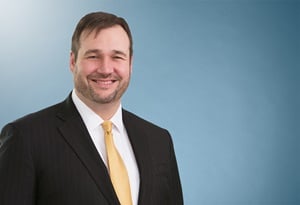Department of Labor Publishes Request for Information on Pooled Employer Plans
The Setting Every Community Up for Retirement Enhancement (SECURE) Act of 2019 created a new type of plan that may begin operating in 2021 called a pooled employer plan (PEP). A PEP is a plan in which multiple unrelated employers will be able to participate. A PEP will have to be maintained by a pooled plan provider (PPP) which must act as a named fiduciary and take on substantially all of the PEP’s administrative duties. Though the statute is fairly detailed, it leaves open a variety of questions, including a number of prohibited transaction issues, that need to be addressed by the Department of Labor (DOL).
Specifically, for PPPs, prohibited transaction considerations are central to how they can be paid for their services, including whether they can include proprietary funds and other products. In light of this, the DOL has issued a Request for Information (RFI) to gather data that it can use in developing needed guidance. According to the DOL’s press release, “[this] RFI is an opportunity for the public to provide data and information that may be used to evaluate whether the [DOL] should propose a new prohibited transaction class exemption.”
In the RFI, the DOL is also seeking data to develop guidance for multiple employer plans (MEPs), which are subject to many of the same issues, questions and concerns. As described in the RFI, a MEP is a single plan sponsored by an employer group or association or a professional employer organization (PEO) for the employees of multiple employer members (of the association) or clients (of the PEO). The term is also used by the DOL to refer to “open MEPs,” which it described in an earlier request for information (issued in July 2019) as a single ERISA plan maintained by a financial institution or other person or entity on behalf of employers with no relationship other than their joint participation in the plan.
While this client alert focuses on summarizing the RFI, we will give our observations about the RFI in the near future. In addition, we will be discussing the RFI in a webinar to be held on July 15, 2020 in conjunction with Pete Swisher of Waypoint Fiduciary, Inc.
This RFI from the DOL requests information on the service providers that will establish PEPs (that is, the PPPs), the business models they will use and areas where conflicts of interest (like prohibited transactions) may exist in the creation and operation of PEPs. In addition, the RFI asks similar questions regarding MEPs, recognizing that PEPs are distinct from already-existing MEP types, but also acknowledging that MEPs face several of the same issues. The fact that MEPs are included in the RFI indicates that any prohibited transaction exemptions the DOL issues for PEPs will likely also cover MEPs.
The RFI asks 14 multi-part questions in three categories: PPPs and MEP sponsors, pooled investments and employers participating in a PEP or MEP. Here is a summary of the questions, which we have paraphrased for ease of reading:
- What types of entities are likely to act as PPPs?
- What business models will PPPs adopt in making a PEP available to employers?
- What conflicts of interest, if any, would a PPP (along with its affiliates and related parties) likely have with respect to the PEP and its participants? Are there conflicts that some types of entities serving as PPP might have that others will not?
- To what extent will a PPP be able to unilaterally affect its own compensation or the compensation of its affiliates or related parties through its actions establishing a PEP or acting as a fiduciary or service provider to the PEP?
- What categories of fees and compensation, direct or indirect, will PPPs and their affiliates and related parties be likely to receive as a result of operating a PEP, including through the offering of proprietary investment products?
- Are there likely to be any differences in types of fees and compensation associated with operation of a PEP as compared to a single employer plan?
- Is it likely that existing prohibited transaction exemptions will be relied on by PPPs? If so, which would be most relevant?
- What plan investment options will be offered in PEPs? What about MEPs?
- What role will the entities serving as PPPs or MEP sponsors, or their affiliates or related entities, serve with respect to the investment options offered in PEPs and MEPs?
- How many employers are likely to join a PEP or MEP?
- Will joining a PEP or MEP be more appealing to employers of a particular size, and is it anticipated that employers will migrate from their own plan to a PEP or MEP? If so, what is the estimated number?
- How many employers and participants are likely to be covered by newly formed PEPs and MEPs?
- Will the existence of multiple employers in a PEP or MEP cause greater exposure to prohibited transactions in connection with investments in employer securities or employer real property?
The comment period will expire 30 days after publication of the RFI in the Federal Register. We think it is important for interested parties to respond to the RFI since the DOL will use the responses as the basis for clarifying the responsibilities of the PPP and of adopting employers, as well as for issuing any needed prohibited transaction exemptions. Instructions for submitting comments can be found in the RFI.
If you have questions about PEPs, MEPs or the RFI or would like assistance in responding, please contact one of us or your usual attorney in the Faegre Drinker employee benefits practice group.
The material contained in this communication is informational, general in nature and does not constitute legal advice. The material contained in this communication should not be relied upon or used without consulting a lawyer to consider your specific circumstances. This communication was published on the date specified and may not include any changes in the topics, laws, rules or regulations covered. Receipt of this communication does not establish an attorney-client relationship. In some jurisdictions, this communication may be considered attorney advertising.



